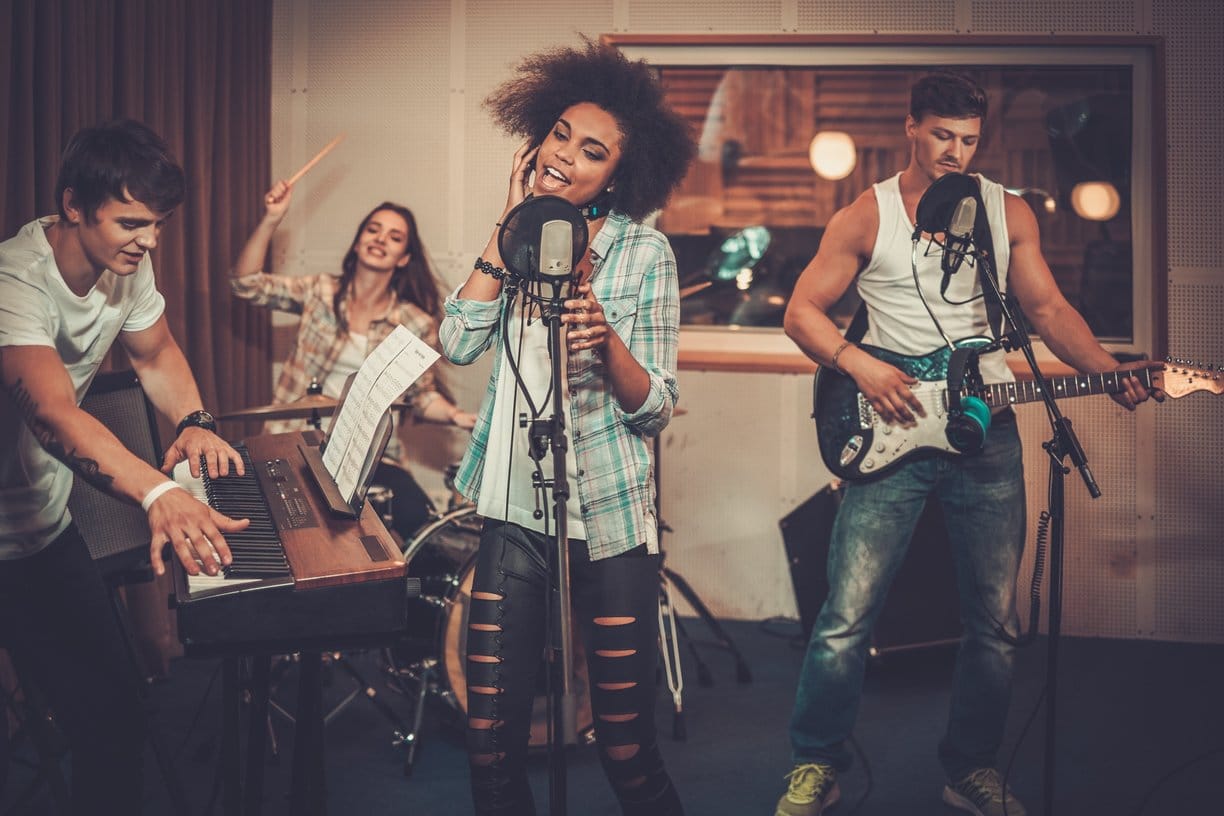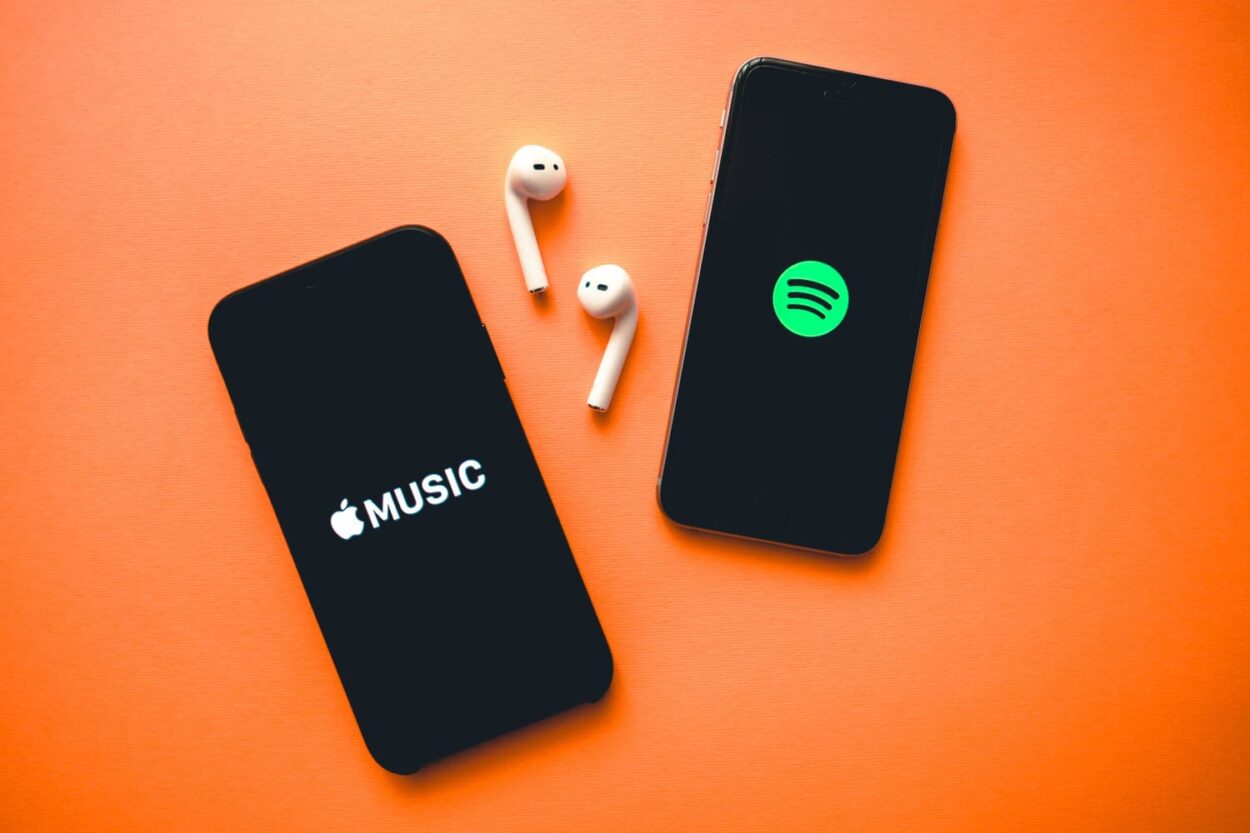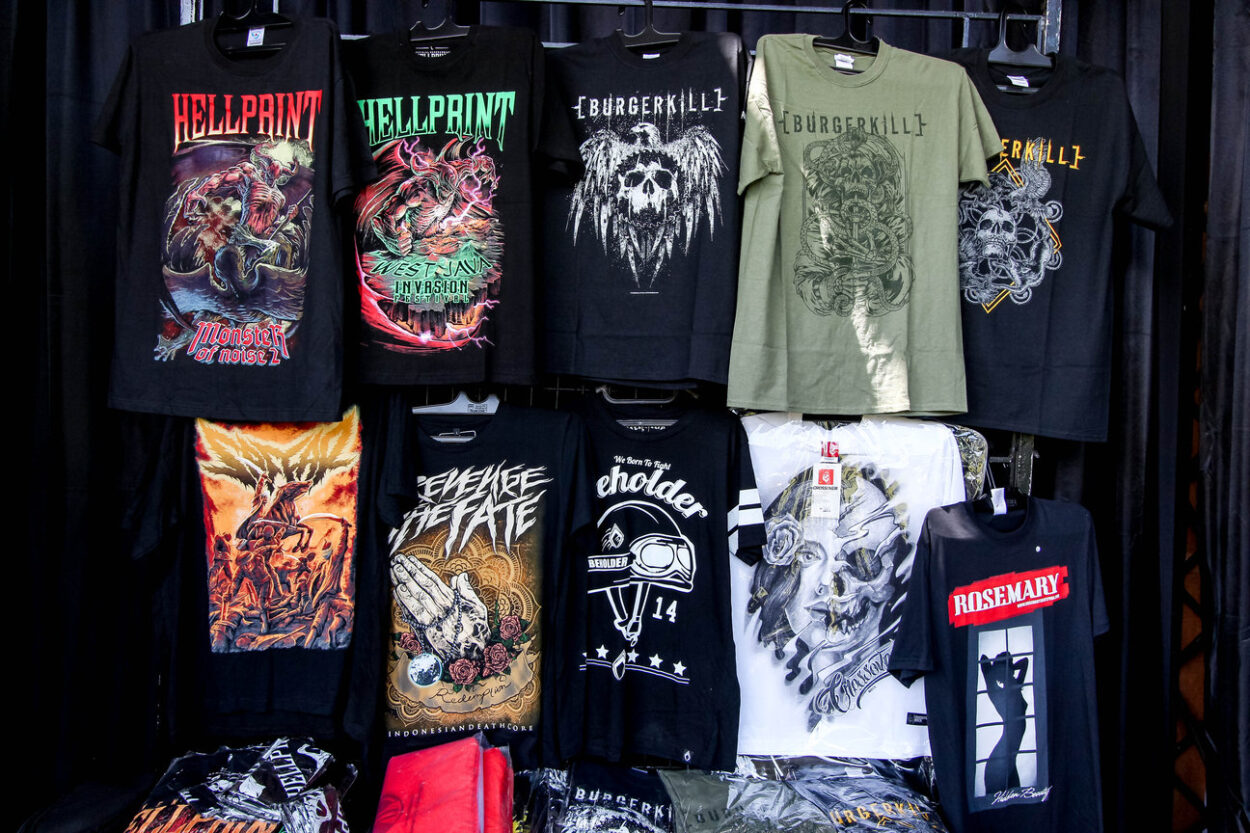Jasmine Birtles
Your money-making expert. Financial journalist, TV and radio personality.


The dream for any artist is to be able to make a living from their passion alone, but this isn’t always easy. The music industry is notoriously hard, plus a global pandemic certainly hasn’t helped either.
To make money as a musician you need to make sure you have a diversified stream of income. For most musicians, the amount earned through gigging isn’t enough alone. Combining a mixture of income sources helps. That way if one avenue dries up temporarily, you’ll have other streams of income to fall back on.
If you’re looking for some ideas, we’ve got you covered on how you can make money as a musician outside of live gigging and touring.

According to IFPI, “digital revenues – especially paid subscription audio streaming – now accounts for 58.9% of the global recorded music market.” Plus, in 2018 alone, total streaming revenues increased by 34%. This shows how quickly streaming has become the most popular way for people to find and listen to new music. As a musician, this provides a great opportunity to not only boost the number of people who have access to your music but also earn money from the royalties.
Spotify and Apple Music are the two leading music streaming services. Both of them allow artists to upload through either a label or distributor. A distributor allows you to share your music on streaming platforms independently, rather than through a record label. They’ll distribute your music across streaming platforms, collect your royalties and pay them into your account.
To upload to Apple Music, if you’re not signed, you need to use one of their partnered distributors. There’s plenty to choose from – you can find the whole list here.
Spotify has similar rules where you need to work with either a label or a distributor to upload. If you don’t currently have a distributor, Spotify works with companies who handle the licensing and distribution of your music. However, the charges and commission involved may be higher than other distributors so it’s worth looking around. You’ll find a lot of variance in what different distributors offer in terms of service and charges so it’s advisable to do some research to find the best one for you.
Teaching music can come in many forms and it doesn’t just have to be via traditional face-to-face lessons. Throughout the coronavirus pandemic online learning has become more popular than ever and there are plenty of places where you can teach online. LectureOwl is easy to apply for as a teacher. Their service connects students with instructors, allowing worldwide access and the ability to teach from home online. Musika is another useful platform for teaching. It offers the choice for you to teach online, from a studio, or in the student’s home.
Another way to make money as a musician is to spend time creating a one-off music course. These are a popular option for many people keen to learn new skills as they’re able to complete the course in their own time.
Some of the best sites to create your own teaching course are: Udemy, Future Learn, and Skillshare. Creating an online course will take a lot of initial work to get set up, but once it’s done it can create a steady source of income. You’re paid every time a student signs up and pays for your course, but you’ve already put the work in.
If you’re skilled in multiple areas of the music industry then branching out into other areas can increase your income massively. Although you might primarily be a performer, knowing how to edit, compose, write lyrics, produce, or mix music, means you can find work in these areas to boost your income.
In particular, being able to work on corporate projects will help boost your income. They tend to provide a more steady source of income than the entertainment sector. Plus, if you do well the first time they’ll likely hire you freelance for repeat projects. Commercial businesses often need music and sound effects for internal projects and advertising and marketing campaigns.
If you’re considering going freelance, or using freelance work to supplement your income we’ve got an article full of useful resources for you here.
There are a whole host of royalty-free sites where you can submit your music to to make money as a musician. Some of the most popular ones are:
With these sites you’re allowing the company to buy the rights to individual tracks, and in return you receive a large, one-off fee.
Royalty-free music is used for projects across various creative industries including film and TV, podcasts, YouTube, and across social media platforms. Submitting work to these sites can be a good way to increase recognition and earn at the same time.

Merchandise can prove to be an easy additional source of income. If you’re a musician with a decent sized social media following it’s worthwhile asking your followers what kind of merchandise they would like to see. Having a bit of insight into the kind of products they would be interested in means you won’t waste money on products that aren’t going to sell.
Common merchandise includes CDs, vinyl, stickers, posters, signed photos, and clothing, but doesn’t have to be limited to these, and you can make pretty much whatever you want. Think carefully about the design though – do you already have an established logo or artwork? If not, choose carefully. Something that advertises yourself or your band is great, but opting for a more subtle design generally means that it will appeal to a larger audience.
Obviously you want to take your merchandise with you to a gig or on tour, but set up a shop online too. You can sell it through your own website or another hosting site designed for musicians such as bandcamp. There are many other ways you can run a shop online, too. Check out our article Setting Up an Online Shop for more help.
Digital merchandise is another option and reduces your production costs. Some ideas for digital merchandise that you could create are video lessons, sheet music, lyrics books, and band artwork and photobooks.
Undoubtedly, the pandemic has caused a great deal of struggle for the arts and entertainment industries. Although, the good news is that tentatively live performances are starting to resume with outdoor gigs and shows. Getting in there early and try to book as many future gigs as possible at least means that you’ll have live performances coming up in the future and be able to take deposits for them.
On the side of this though, whilst social distancing measures remain in place, online gigs have proved really popular. You can collaborate with other musicians to put on a longer event through YouTube or any other social media streams. Consider charging for your event but keep the cost low so people aren’t put off. Donating a proportion of the charge to a charity supporting the arts industry also helps. This way you can also work with the charity to get them to help promote the event. Plus, you can give your viewers the option to tip which is easily done through Venmo or PayPal.Me
If you’re looking for more ideas on how to make money in the arts, why not check out some of the articles below:

“Six Ways to Make Money As a Musician (Even in a Pandemic)” is a timely and insightful guide for artists navigating these challenging times. The creative approaches offered are perfect for adapting to new circumstances and continuing to thrive. Thanks for sharing these innovative ideas—it’s a great resource for musicians looking to earn and stay engaged with their craft!